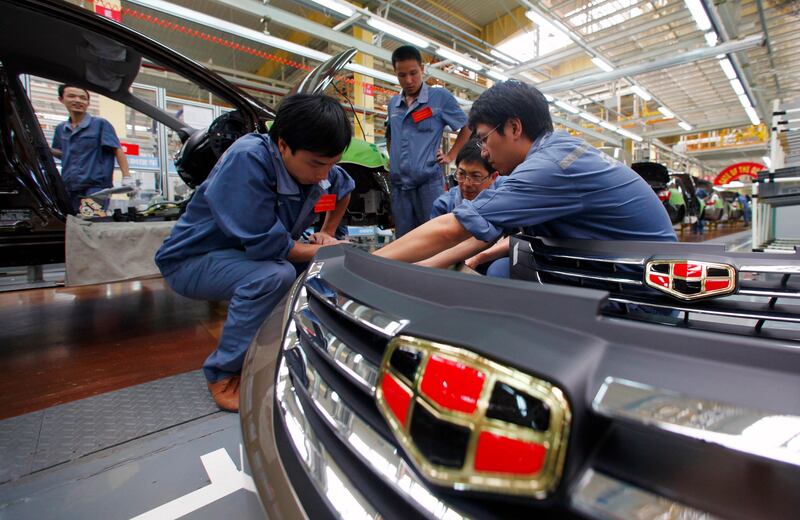Abu Dhabi's plans to become a global downstream industries leader will hinge to some extent on securing customers in key markets in Asia.
The emirate is already a top two producer of olefins and polyolefins if all of its petrochemicals and plastics interests are taken collectively, including the Borouge JV between Borealis and the Abu Dhabi National Oil Company (Adnoc) and other holdings such as Mubadala's stake in Austrian integrated oil firm OMV.
Borouge has plans to double capacity at its Ruwais plant and is already building on its production facility in Shanghai which helps it access the lucrative auto market in China.
The chief executive of Adnoc has been in China and Japan to explore potential new partnerships to support this growth strategy.
In meetings last week with potential and existing partners, including China state-owned Sinopec and CNPC, Sultan Al Jaber, Minister of State and Adnoc group chief executive discussed the partnership and co-investment opportunities created through the company's new approach.
#ADNOC CEO discusses potential partnership opportunities with #Sinopec Chairman, Mr. Wang Yupu, in #China pic.twitter.com/2BAu7oc0Up
— ADNOC Group (@AdnocGroup) July 18, 2017
Adnoc has been expanding its view of partnerships as it seeks to have more of an active portfolio approach to its vast assets and unlock both the monetary and strategic value including the transfer of technology, creation of jobs, and bringing in of new expertise.
These opportunities are for the first time being offered in areas such as drilling, midstream infrastructure such as storage and pipelines as well as being expanded in downstream such as petrochemicals and plastics production.
"We are therefore seeking partners to co-invest across the different parts of our value chain and who will bring operational expertise and technology, as well as the ability to secure greater access to these fast-growing markets," said Mr Al Jaber.
Asian demand for petrochemicals, plastics and polymers is expected to more than double in the next 25 years.
The region is also home to considerable investment, financing and banking expertise that Adnoc will seek to leverage as part of its new partnership model, the company said.
"China remains the primary target market for most global petrochemical expansions. New players in the Middle East and Africa would likely be near the lowest-cost globally, and therefore would compete primarily against US producers, who have similarly low costs," said Jason Miner, a senior global chemicals analyst at Bloomberg Intelligence.
In China, Mr Al Jaber also met with Wang Yi, China's foreign minister, and in Japan he had a bilateral meeting with prime minister Shinzo Abe.
#ADNOC CEO #DrSultanAlJaber visits #China & meets with Mr. Wang Yilin, #CNPC Chairman; discusses ADNOC's new expanded partnership approach pic.twitter.com/1sysC1Z6iG
— ADNOC Group (@AdnocGroup) July 18, 2017
"We look forward to building on our successful partnerships in both China and Japan. We believe our mutual goals and objectives are aligned and that committed and long term collaboration will help meet the growing energy demand of both countries, as well as promote sustainable economic growth and trade," said Mr Al Jaber.
The Abu Dhabi-Japan Economic Council meeting was also held in Tokyo last week, during which Abu Dhabi officials discussed potential areas of cooperation, including in oil and gas.







